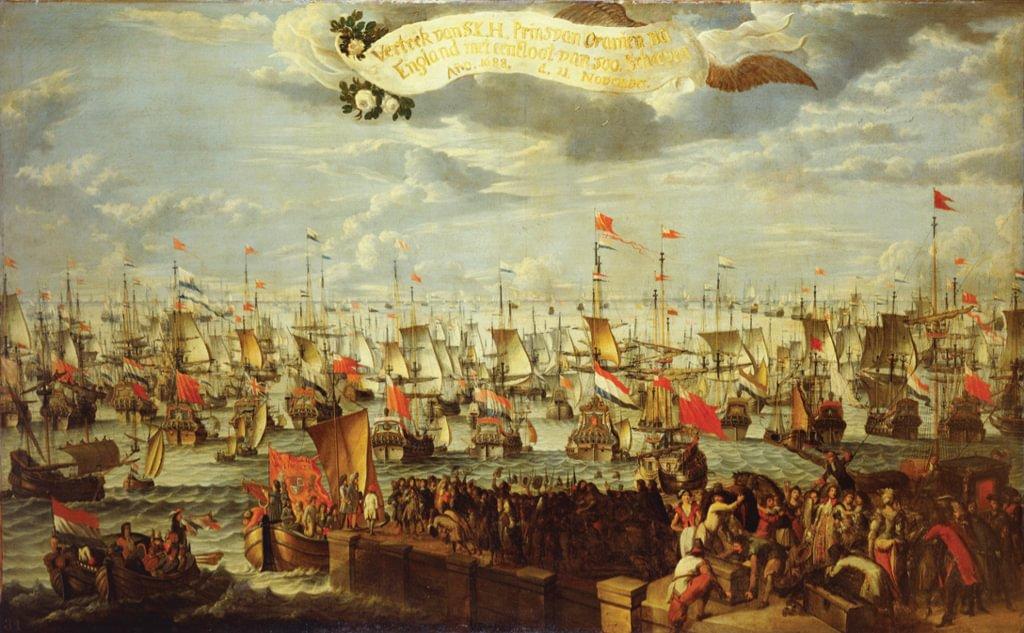
‘The Embarkation of William III, Prince of Orange, at Helvoetsluis,’ showing William’s fleet departing for England during the ‘Glorious Revolution’; painting after an etching by Romeyn de Hooghe, circa 1688–1699
Age of Revolutions: Progress and Backlash from 1600 to the Present
by Fareed Zakaria.
Norton, 383 pp., $29.99
Fareed Zakaria is a captain of the punditry industry. A longtime host of his own CNN show on international and domestic politics, a columnist at The Washington Post, and the author of best-selling books on current affairs, he seems to have been everywhere and read everything. Born in India of Muslim parents, educated at Yale and Harvard, and now hobnobbing with heads of state, he maintains just enough emotional distance from the United States to look at our internal divisions and external entanglements with a relatively cool eye. In Age of Revolutions Zakaria goes all the way back to the Netherlands in the 1500s to try to understand our contemporary situation, with its populist backlash, uncertainties about globalization, eye-popping changes in digital technology, and upending of the international political order as a result of the rise of China and the revanchism of Russia. Even without the historical background, this would be a daunting subject.
The disruptions in politics, economics, and technology make this a revolutionary time, Zakaria maintains, so examples from past revolutions should help illuminate our path. He aims to answer three main questions: “What makes a period revolutionary? Are there other predictable consequences of a revolutionary era? And how does it all end?” These questions sound straightforward, but examined more closely, they reveal questionable assumptions. Zakaria contends that we live in a revolutionary period, but we cannot be certain of this because we do not know what its trajectory will be. That Steve Bannon thinks we live in revolutionary




